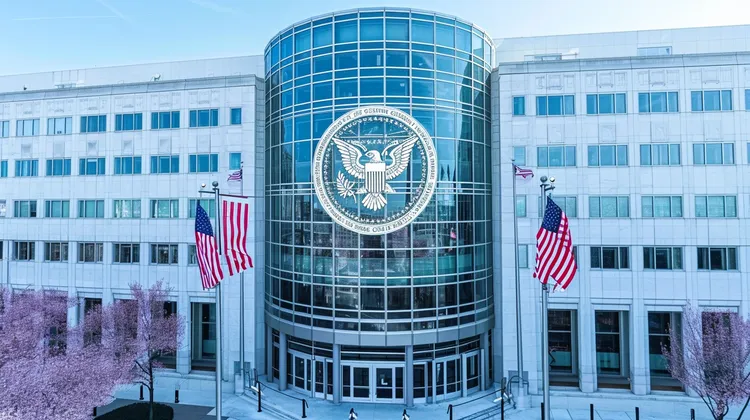
SEC Chair Calls Bitcoin Centralized Following ETF Approvals
In a surprising turn of events that has both stunned and confused investors, the Chair of the U.S. Securities and Exchange Commission (SEC) has made a public statement declaring Bitcoin as possessing characteristics of centralization, despite the Commission’s recent approval of several Bitcoin exchange-traded funds (ETFs). This apparent contradiction has opened a Pandora’s box of debate and speculation within the financial and cryptocurrency communities.
For years, one of the most heralded qualities of Bitcoin has been its decentralized nature. The cryptocurrency operates on a distributed ledger technology known as blockchain, where transactions are confirmed by a network of nodes rather than a central authority. This decentralization is often touted as a defense against censorship and manipulation by any single entity.
The SEC Chair’s statement points to a different reality, suggesting that certain aspects of Bitcoin’s infrastructure, such as mining operations and software development, are concentrated in the hands of a few, creating pockets of centralization within an ostensibly decentralized system. The critique also brings into question the influence of large Bitcoin holders, who may have significant sway over the market.
To understand the SEC’s stance, it is essential to delve into the dynamics of Bitcoin mining. Mining is a process through which new bitcoins are created and transactions are verified and added to the blockchain. It requires substantial computational power and is dominated by large mining pools, which combine their resources to improve efficiency and profit margins. Critics argue that if these pools control a considerable portion of the network’s hash rate, they could in theory collude to manipulate transaction verification, casting doubt on the untampered nature of the blockchain.
Similarly, the development and implementation of software upgrades are frequently led by a limited number of developers. Given the open-source nature of Bitcoin’s software, this group theoretically has substantial influence over how the network functions and evolves, potentially challenging the idea of a leaderless system.
The SEC Chair’s comments on centralization come unexpectedly after the regulator’s green light for Bitcoin ETFs. This step was widely seen as a milestone for cryptocurrency’s integration into mainstream finance, offering investors regulated and standardized vehicles to gain exposure to Bitcoin without holding the asset directly. The ETF approvals signaled a level of confidence in the market’s maturity and its mechanisms.
Yet, the juxtaposition of the SEC’s seemingly contradictory outlook has led to a sense of cognitive dissonance among market participants. While the SEC undoubtedly conducted thorough due diligence before approving the ETFs, one wonders why the issue of centralization was not raised as a potential risk factor beforehand or why the approvals were granted if centralization was a significant concern.
Some analysts speculate that the SEC’s perspective is not so much a verdict on Bitcoin’s current state but rather a cautionary highlight for future governance. As institutional involvement in Bitcoin grows, the risks associated with centralization could become more pronounced. Large financial entities may accumulate enough Bitcoin or gain enough influence over mining operations to shift the balance of power in the network, potentially compromising its integrity.
Industry stakeholders have been quick to respond to the SEC Chair’s assertions, emphasizing the robustness of Bitcoin’s consensus mechanism and the pluralistic nature of its development community. They argue that while centralization risks do exist, the ecosystem is designed with multiple checks and balances that make collusion or dominance by a single party exceedingly difficult.
The centralization debate has also injected fresh urgency into ongoing discussions about the governance models of digital currencies. It highlights the need for continuous assessment and adaptation to ensure that cryptocurrencies like Bitcoin remain true to their foundational principles while evolving in a rapidly changing financial landscape.
In the meantime, the reality for investors is complex. On the one hand, the availability of Bitcoin ETFs is a testament to the asset’s growing legitimacy and appeal. Concerns surrounding centralization could temper enthusiasm and invite more scrutiny from regulators.
The SEC Chair’s statement serves as a sobering reminder that the conversation around Bitcoin’s decentralization is not settled. It underscores the nuanced nature of the asset and the interplay between its technological infrastructure and the evolving financial ecosystem. As the market digests these developments, the need for a well-informed and balanced approach to Bitcoin investment and regulation becomes more apparent than ever.